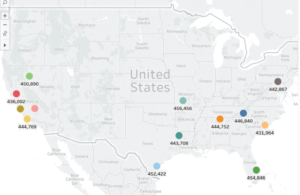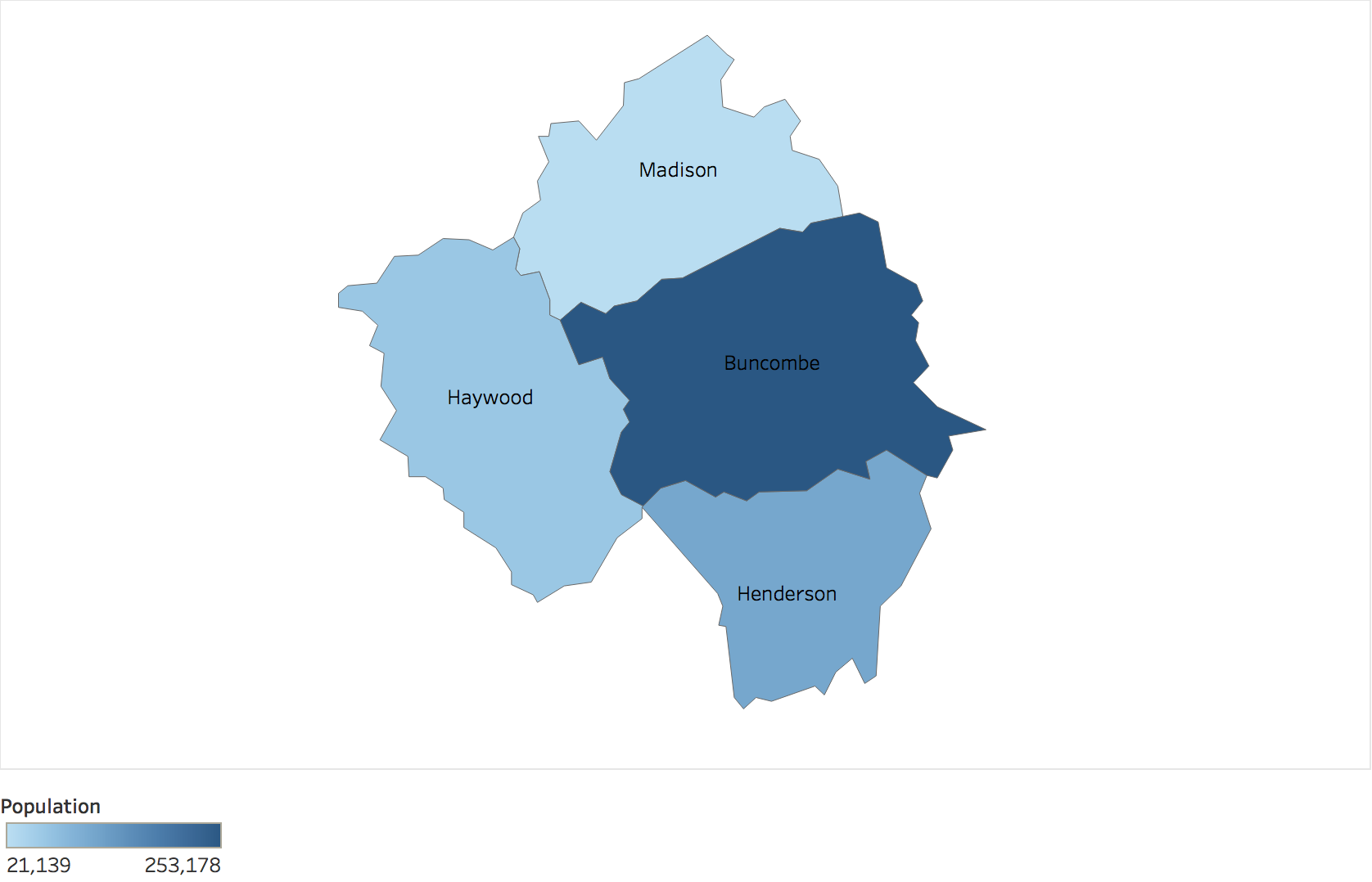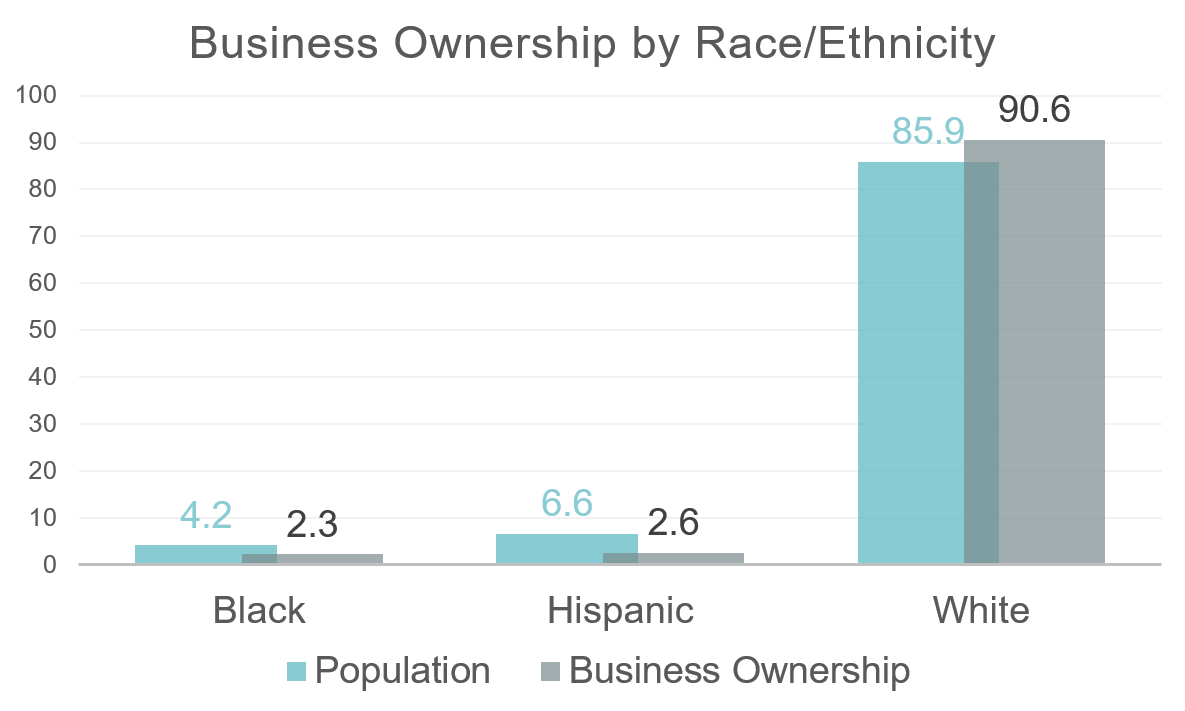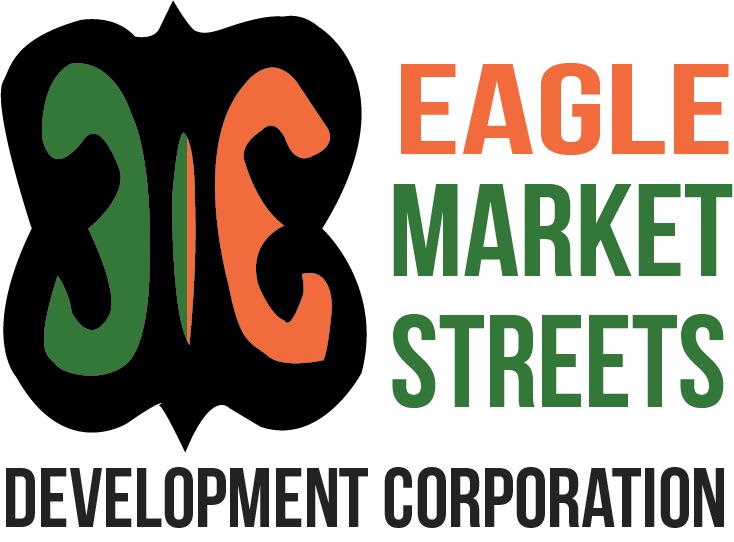| Background | The Gaps | Next Steps | Get the Report | About Us |
 Filling the Gaps: Study finds potential for 2,000 more local businesses and 10,000 jobs for the Asheville area
Filling the Gaps: Study finds potential for 2,000 more local businesses and 10,000 jobs for the Asheville area
The Asheville area economy is leaking money, jobs, and resources. That’s the key takeaway of the Local Economy Gap Analysis, a study commissioned by the Western North Carolina New Economy Coalition with funding from the City of Asheville and Mountain BizWorks.
While Asheville is well-known for loving its local businesses, the study identifies a substantial level of products and services being purchased from outside of the Asheville region but which could be produced here. In fact, these gaps are enough to support 2,000 new or expanded local small businesses and 10,000 additional jobs.
According to the findings, there are eight top business sectors in need of further development ranging from construction to health care and many more that show smaller opportunities.
The study also explores how these opportunities can be harnessed to advance businesses owned by persons of color in Asheville and includes several important recommendations towards addressing prevailing disparities.
In addition to making the study and data tools available for download, members of the Coalition have services available to help existing or aspiring entrepreneurs interpret the data to help start or grow their business.
The WNC New Economy Coalition and its members are excited to share the report and look forward to engaging with entrepreneurs and other community partners to use the findings towards building a strong and equitable economy.
Asheville Area Economy Key Facts
The geographic context for the study was the Asheville Metropolitan Statistical Area (MSA) which is comprised of Buncombe, Haywood, Henderson, and Madison counties.
Currently, there is an evident gap between the demographic makeup of our local economy and the racial makeup of business owners within it. Data from the Local Economic Gap Analysis helps us understand the best opportunities for local economic development. At the same time, statistics show that people of color participate disproportionately in our economy. The Coalition encourages consideration of how we can substitute these imports with local business activity in a way that is inclusive and equitable.
Study Methodology
The economic “leakage” component of the study created a benchmark based on 13 peer cities around the US and then compared the activity levels of different local business sectors in Asheville versus the benchmark. For example, the data shows Asheville has 87 drywall installers. Yet, according to the benchmark, you would expect a city Asheville’s size to have 307. This difference suggests substantial leakage – that Asheville is purchasing drywall installation services from outside the area and could offer an opportunity for local companies.

Where are the Gaps
Here are the eight local sectors that the study suggests have the of greatest opportunity for new business creation or expansion (click or roll over a sector to see types of business within the sector). Many additional sectors also showed promise and while others are over-represented. Don’t see your industry here? Get the study and our deep dive data tool to see how your industry fares.
[drawattention ID=”10373″]
Use the Data to Start or Grow a Business
The study identifies several areas that may be ripe for new business activity, however, these should be treated as preliminary indications and not as “shovel-ready” or “investment-ready” opportunities.
To develop an actionable strategy around the data shared from the study take advantage of the Local Economy Gap Analysis workshop being held at Mountain BizWorks on June 26th from 3:00-5:00pm
Here are two approaches on how to make the Local Economy Gap Analysis work for you!
If you are already in business…
- Look to see if your industry is included as having increased opportunity and evaluate the jobs potential, the number of sector jobs we are missing, and the industry’s growth.
- Additionally, check to see if there are any adjacent fields which you could see your business expanding its services to.
- Take the information and do additional, research and take advantage of services to create a comprehensive expansion plan.
Here is a sampling of business services which can be used to utilize the results from the study…
○ Coaching: Meet with a business coach to develop a plan around identified business opportunities from the Local Economy Gap Analysis
○ Work with the NEC Resource Navigator, who will help you navigate what services to use for different aspects of scaling your business.
○ Go to a Local Economy Gap Analysis Breakdown Session on 7/26: Join the New Economy Coalition for a workshop where we break down all of the data from the Local Economic Gap Analysis and help you
○ Test Drive: Get a space to vend at one of the most exciting local festivals to get valuable market feedback on how you can grow your business ideas
○ Alpine: This five-week course for existing business owners allow you to create a business expansion plan utilizing the information you learned in the Local Economic Gap Analysis
○ For further local business, resources check out this resource guide
If you are an aspiring entrepreneur…
- Look to see if you have interest in any of the fields that are ripe with opportunity.
- Take the information, develop a business plan, and get started.
Here is a sampling of business services which can be used to utilize the results from the study…
- Coaching: Meet with a business coach to develop a plan around identified business opportunities from the Local Economy Gap Analysis
- Go to a Local Economy Gap Analysis Breakdown Session on 7/26: Join the New Economy Coalition for a workshop were we breakdown all of the data from the Local Economic Gap Analysis and help you
- Work with the NEC Resource Navigator, who will help you navigate what services to use for different aspects of creating your business.
- Foundations: This six-week course for aspiring entrepreneurs allows you to create a business plan around the new information you have learned from the Local Economic Gap Analysis
- Test Drive: Get a space to vend at one of the most exciting local conferences to get valuable market feedback on how you can grow your business ideas
- For further local business, resources check out this resource guide
Top Policy Findings
What we were looking for with the qualitative analysis was to get a picture of the local economy for businesses owned by people of color, and to determine opportunities to develop a stronger support system.
Get a summary of the findings from interviews with African American/Black and Hispanic/Latinx business owners, business support organizations, local government, and other anchor institutions by scrolling over the different circles in the Venn diagram.
Get The Report
Please complete this quick form and we’ll email you a link to download the report, summary presentation and data tools.
Western North Carolina New Economy Coalition
About the WNC-NECThe Western North Carolina New Economy Coalition is a collaborative collective of community-based organizations and individuals working to explore and develop effective models for local economic development which move us toward a genuine shift, where all members of our shared economy have equal opportunity to create real wealth. NEC collaborating organizations include Center for Local Economies, Eagle Streets Market Development Corporation, Neighborhood Economics, Green Opportunities, Just Economics, Mountain BizWorks, Self-Help Credit Union and others.
For More Information
If you are a business or media representative seeking more information contact:
Rebekah Wallace
Moriah@mountainbizworks.org
828-424-839








